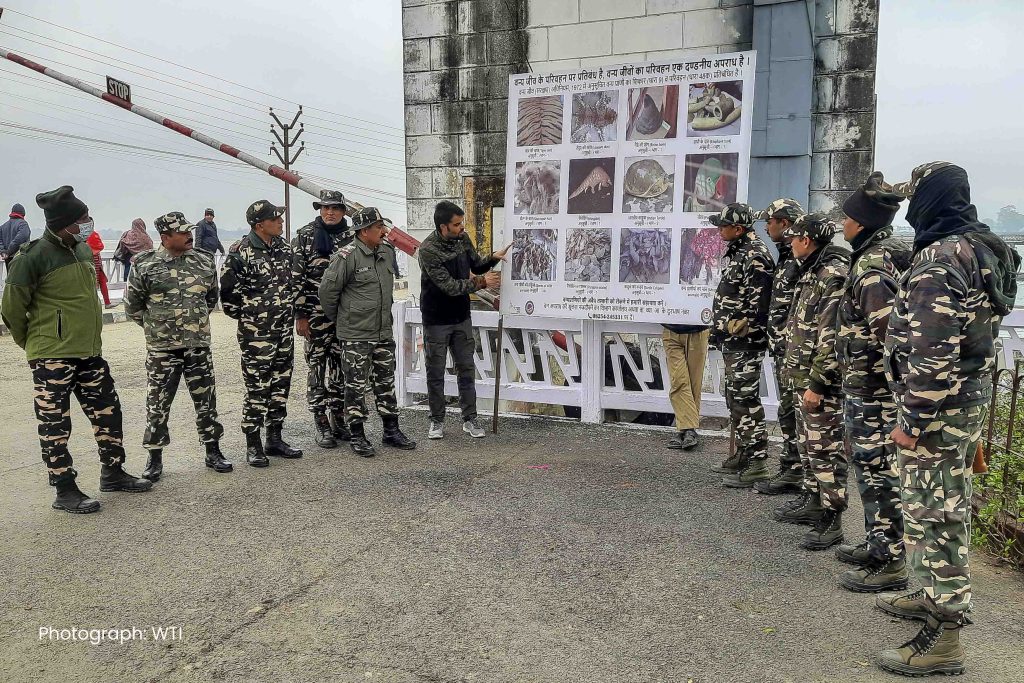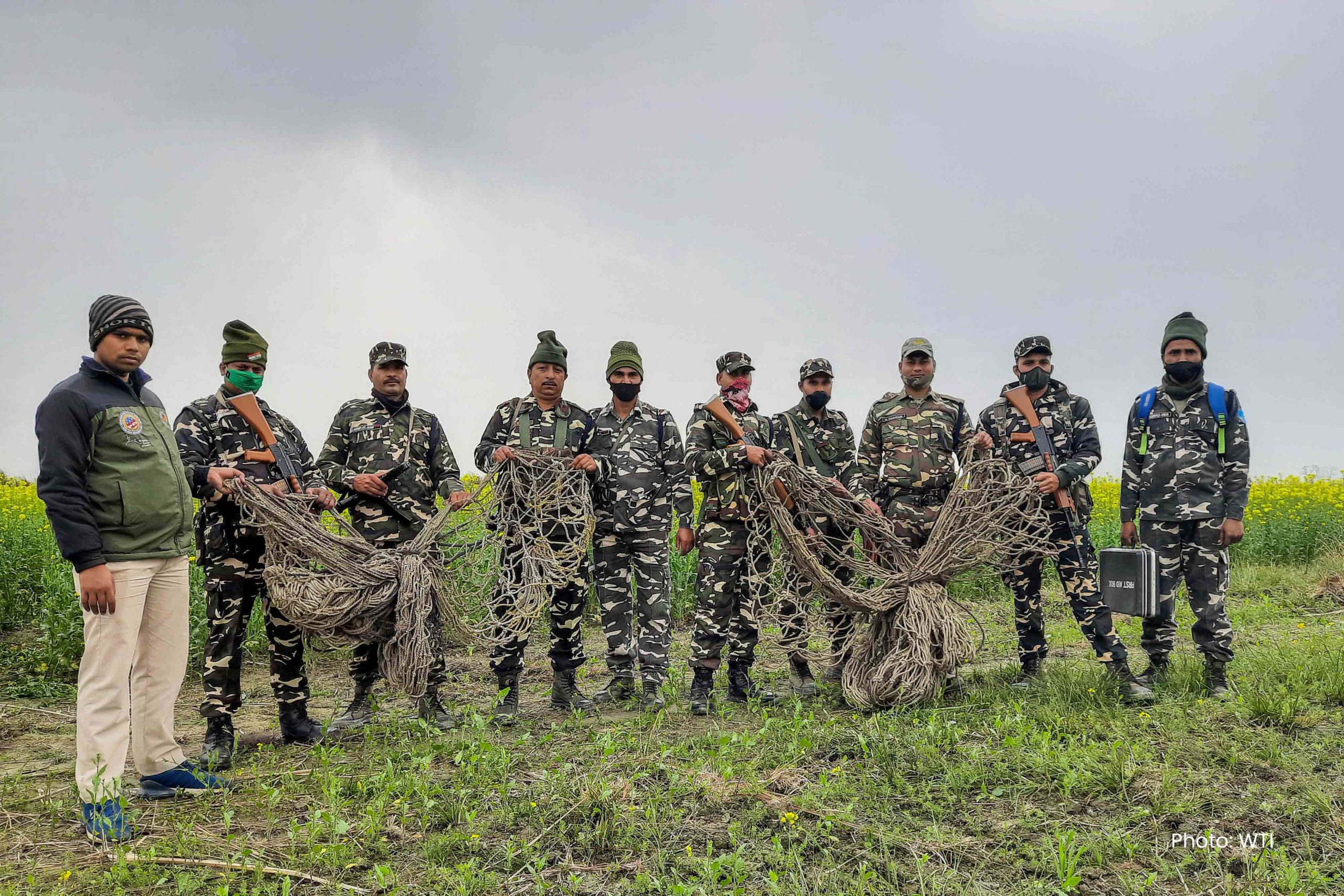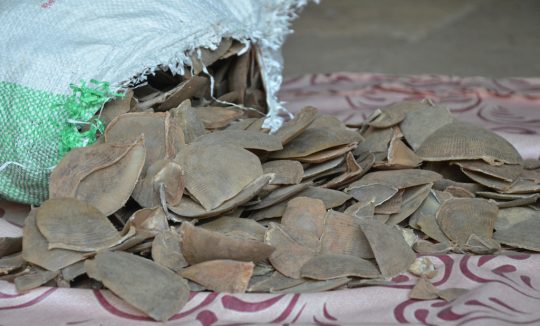Project Info
Project Description
India shares international borders with Pakistan, Nepal, China, Bhutan, Myanmar, Afghanistan and Bangladesh, thus significantly highlighting its strategic position in Southeast Asia. The Indo-Nepal border is a highly sensitive region characterized by vast stretches of dense forests that shelter flagship species such as tigers (Panthera tigris), elephants (Elephas maximus), leopards (Panthera pardus), rhinoceros (Rhinoceros unicornis) to name a few and the frequency of cross border wildlife crime.
There are six protected areas (PAs) along the Indo-Nepal border in the states of Uttar Pradesh and Bihar. These PAs, home to flagship species, require the highest level of surveillance and vigilance to protect the flagship species that they host. A prevalent issue in this region is the use of snares, a rudimentary and inexpensive method employed by poachers to trap wild animals. The mechanism of snares works in a way that there is a noose at the end which ensnares the animal’s head, leg or paw. Even the slightest tug causes the grip to tighten, which can lead to asphyxiation or cutting off the blood supply to vital veins.
Under this project run by WTI in collaboration with the Uttar Pradesh Forest Department and Environment, Forest and Climate Change Department, Bihar, and the support of the Bureau of International Narcotics and Law Enforcement Affairs, the frontline forest officials and WTI field team conduct regular anti-snare walks along the forest fringes and sensitive hotspots.

Poster on commonly traded animals in Illegal wildlife trade at Into-Nepal border | Photo by Pappu Yadav/WTI
The WTI team has engaged in various discussions with officers from the Sashastra Seema Bal (SSB), who have been bestowed with the duty of securing the Indo-Nepal border, to raise awareness of the negative impact of snaring. The team also holds regular meetings with Wildlife Crime Control Bureau (WCCB) to apprise them of the situation at the border. Following multiple transboundary meetings, the WTI team has conducted joint anti-snare walks with SSB officials at the Valmiki Tiger Reserve in Bihar, leading to the recovery of jaw traps, nets, bows and arrows, spears as well as metal wire snares from forest fringes and agricultural farmlands.
Additionally, WTI provides legal assistance to the state Forest Departments of Uttar Pradesh Forest Department and Environment, Forest and Climate Change Department, Bihar. WTI’s legal consultants regularly engage with frontline forest officials to gather case updates and provide guidance on wildlife crimes in order to ensure that proper investigation takes place. Furthermore, frontline forest officials are also empowered through capacity-building training workshops focused on equipping them with enhanced skills and strategies to effectively address wildlife crimes.
The ultimate aim of the project is to strengthen cross-boundary cooperation between India and Nepal and to minimize the mortality caused by snares. With the help of policy-level changes between both countries, Illegal Wildlife Trade (IWT) between India and Nepal can be significantly reduced, and pro-conservation judgements can pave the way for a sustainable future. Our team also encourages the participation of local communities, who live in close quarters of the forest, to sensitize them on the long-term harmful effects of snaring and how their involvement and participation can be instrumental in reducing cross-border wildlife crime.
PARTNERS: Uttar Pradesh Forest Department, and Environment, Forest and Climate Change Department, Bihar
For more information about the project: debobroto@wti.org.in












